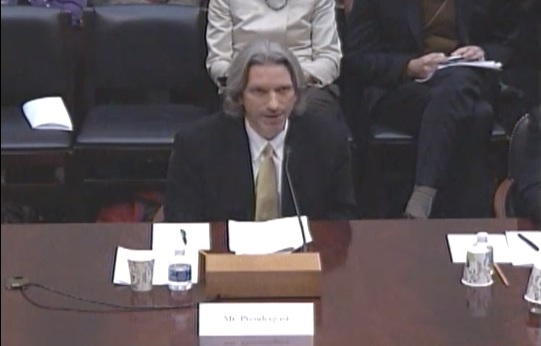
Over the past few days, Congress has been active in its response to the conflicts unfolding in both Sudan and South Sudan. In the House, Rep. Chris Smith (R-NJ) of the Subcommittee on Africa, Global Health, Human Rights, and International Organizations held a hearing on Sudan and South Sudan on Wednesday. In the Senate, Senator Cardin (MD) led a bipartisan Senate letter to the Administration. Since mass atrocities and human rights abuses are being committed in both countries, the Enough Project applauds the Senate and the House’s sustained attention to both countries.
The subcommittee convened on February 26, 2014 to hear testimony from experts and discuss “U.S. Policy Towards Sudan and South Sudan.” Panel experts included Special Envoy to Sudan and South Sudan Donald Booth from the U.S. Department of State, John Prendergast, co-founder of the Enough Project, Dr. Walid Phares, Co-Secretary General of the Transatlantic Legislative Group on Counter Terrorism, and Adotei Akwei, Managing Director for Government Relations at Amnesty International USA.
In his remarks to the panel, Special Envoy Booth emphasized,
"[The South Sudanese] government must not be given the space to return to business as usual with a quick fix and political accommodations for the main protagonists, for the simple reason that this will not bring about a sustainable peace.”
Enough Project Co-Founder, John Prendergast, began the panel conversation calling for a broader strategy in four essential areas: peace, democracy, accountability, and the leverage to impact these goals. Prendergast advocated for a diplomatic surge centered on the need for a second special envoy to the region. He noted that given the complexities and extensive nature of the conflicts, mediating the issues is too much for any one envoy, no matter how effective and capable. Prendergast also urged that the U.S. send a stronger diplomatic team to the region headed by influentials in the international community who have a history with the players on the ground.
On the issue of Sudan, he called for a unified peace process for the entire country rather than allowing Bashir to divide and conquer the peace processes into separate agreements on Darfur, Abyei, the Blue Nile, and South Kordofan. In South Sudan, Prendergast called for an inclusive peace process with the augmented participation of civil society and youth. Prendergast closed his statement by speaking about the incentives and pressures needed to bring about serious negotiations on the conflicts; initiatives that include adding China to the “Troika” to increase influence, increasing targeted, smart sanctions in South Sudan, and uprooting Khartoum's economic lifelines such as conflict gold and debt relief.
On Tuesday, February 25. Senator Ben Cardin (D-MD) led a bipartisan letter on Accountability for Human Rights Violations in South Sudan. In the letter addressed to President Obama, signatories, including Senators Johnny Isakson (R-Ga.), Chris Coons (D-Del.), Tom Harkin (D-Iowa), Kirsten Gillibrand (D-NY), Edward Markey (D-MA), and Al Franken (D-MN), stressed the importance of U.S. leadership “in the defense of human rights and [action] to ensure that this comes to an end.” This letter,following the Senate Committee on Foreign Relations Hearing in January signifies commitment, to “address accountability of human rights violations perpetrated in South Sudan,” and echoes the recognition by Prendergast and Special Envoy Booth that accountability and reconciliation are essential for moving the country forward and stopping the cycle of violence.
Read John Prendergast’s Full Testimony.
Read the Full Letter to President Obama from Senators.
This post was written by guest-bloggers and Enough interns Emily Brandon and Nicole Audette.
Photo: John Prendergast speaks before the House hearing on the Sudans

